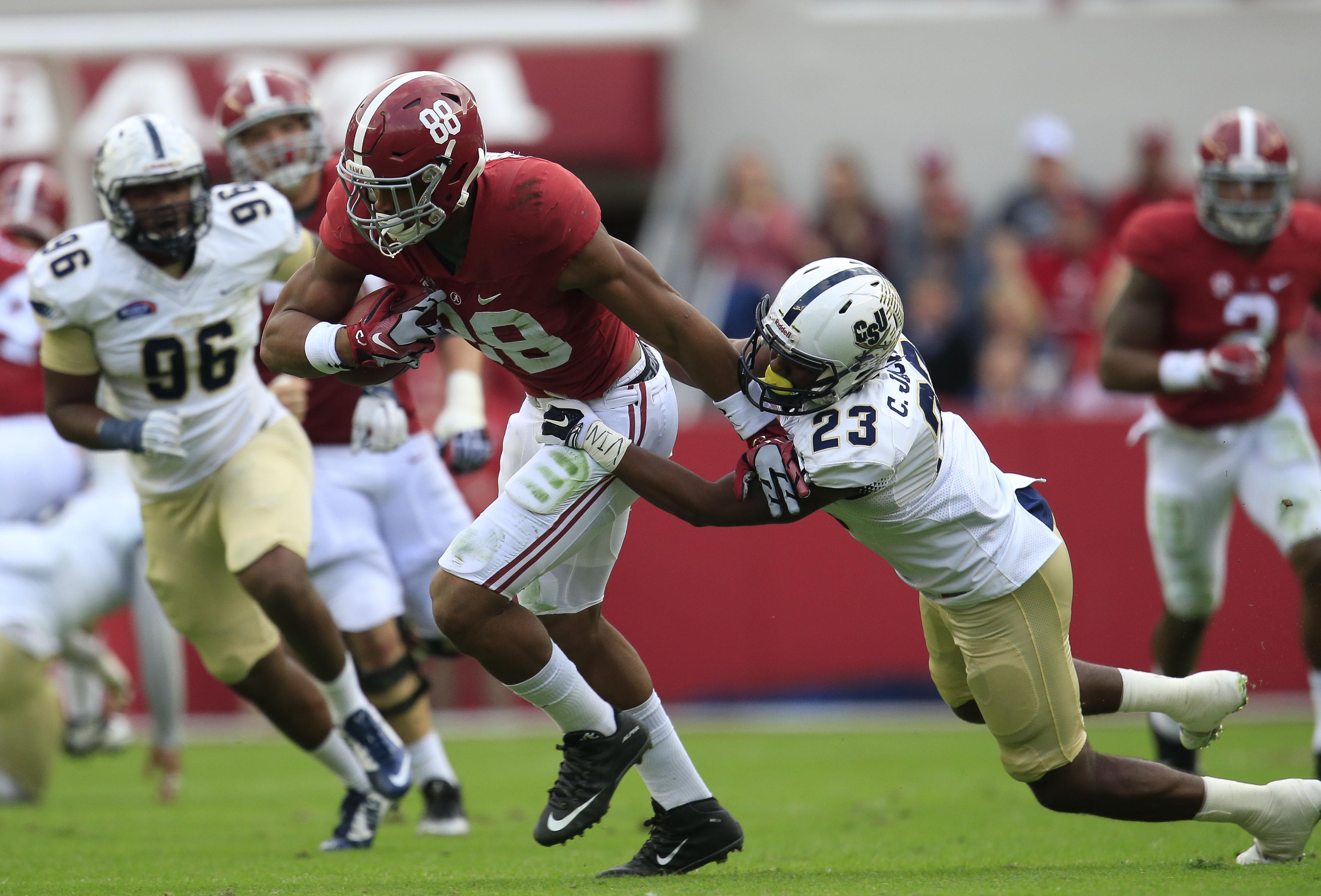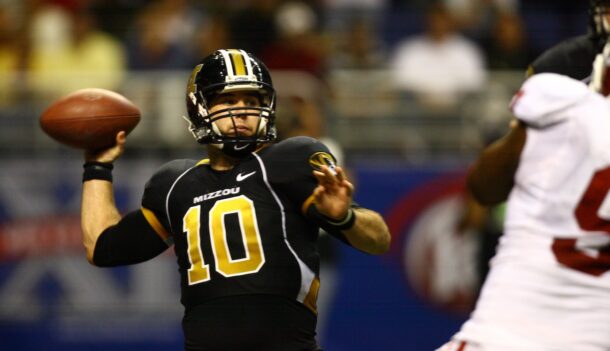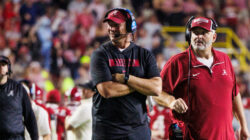
For a few weeks early in the season, tight end O.J. Howard looked like as good a candidate as any to emerge as Alabama’s most prolific pass-catcher.
Freshman wide receiver Calvin Ridley hadn’t yet established himself as a college player and quarterback Jake Coker was struggling to find receivers downfield, making the 6-foot-6, 242-pound junior a particularly attractive target.
Howard recorded 11 catches for 149 yards in the Crimson Tide’s first three games, but his production took a huge dive from there and he enters the Cotton Bowl against Michigan State having made 30 catches for 335 yards in 13 games.
The extended break between the SEC Championship Game and the start of the College Football Playoff might have given head coach Nick Saban and offensive coordinator Lane Kiffin an opportunity to devise a plan to get their tight end more involved in what figures to be a game in which yards through the air are particularly precious.
But doing so against the Michigan State defense might not be easy.
The Spartans have essentially locked down the tight end position this season. After allowing Western Michigan’s Jeremiah Mullinax to catch a 29-yard touchdown pass in the season opener — his only catch in the game — Michigan State didn’t allow a touchdown by a tight end the rest of the season.
Michigan’s Jake Butt and Ohio State’s Nick Vannett, arguably the two best tight ends in the Big Ten, combined to make four catches for 13 yards against the Spartans. Vannett and Iowa’s Henry Krieger Coble were the only two tight ends to make more than two catches against MSU all season, both finishing with three.
But perhaps there’s something from that Iowa game film that can help the Tide figure out a way to get its tight end some action in the national semifinal. Michigan State allowed tight ends to make just 13 catches for 113 yards in 12 regular season contests, but Iowa had two tight ends combine for five catches for 49 yards in the Big Ten title game.
While those are still fairly modest numbers, it accounted for a significant chunk of the Hawkeyes offensive production in the game. If the Tide can get something similar out of Howard it would mark his best receiving game since the Ole Miss game on Sept. 19.
And while the Alabama offense has been successful without a huge contribution from Howard the past couple months, Michigan State coach Mark Dantonio and his staff has surely spent the past couple weeks working on a game plan designed to slow Heisman Trophy winning running back Derrick Henry and limit Ridley in the passing game.
Working Howard back into the mix would add a different dimension to the Alabama offense and take pressure off both Henry and Coker. Making an effort to get the ball to Howard, who is faster than many of the starting tight ends in the Big Ten, could also force Michigan State out of some of the defensive sets that have worked so well for the Spartans this season.
Alabama has proven it can win without a huge contribution from Howard, but there is almost always a surprise hero who comes up big in these huge postseason games. If Howard is the one who emerges it could change the dynamic of both teams.
Shane Mettlen is a contributing writer for Saturday Down South. He covers Texas A&M, Missouri and Alabama.







